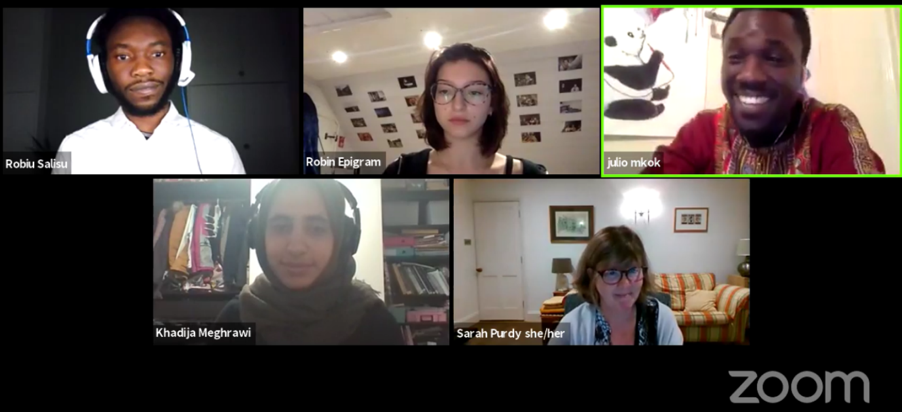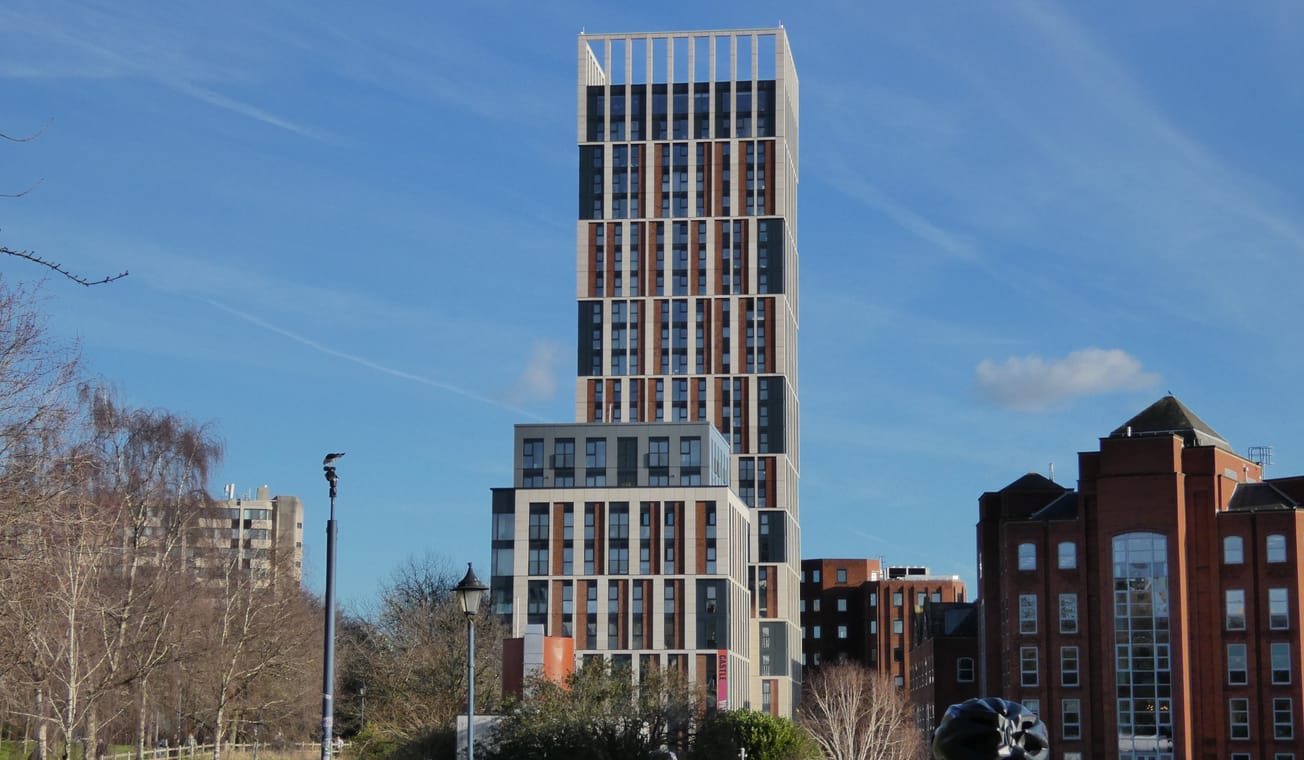By Tia Bahia, BAME Affairs Correspondent
The final instalment of the four-part Anti-Racism webinar series organised by the University of Bristol Anti-Racism Steering Group, in collaboration with Epigram and the BAME Network took place on 25 February.
The series concluded with a discussion addressing racism and microaggressions on campus with the panel consisting of Sarah Purdy, Pro-Vice Chancellor for Student Experience and Julio Mkok, Union Affairs Officer and Co-Chair of the Board of Trustees at the Students’ Union.
The event was co-chaired by Khadija Meghrawi, Chair of the BAME Network and Robiu Salisu, Student Inclusion Officer. The pair communicated pre-submitted questions to Sarah and Julio as well as some live questions that came in from audience members during the webinar.
The event started off with Julio and Sarah giving short presentations to introduce the topic in question and provide an overview of the work they are involved in.
Julio Mkok used this time to list some of the work the SU has done to tackle microaggressions such as introducing annual anti-racism training for society leaders and what further plans there are in place to create lasting change. He said: ‘A lot more can and should be done, its just a matter of maintaining the gradual progression we have made so far’.
Sarah Purdy included key definitions as used by the university in her introduction, including racial harassment being ‘unwanted conduct on the grounds of race, ethnicity or national origin’ and microaggressions as ‘a subset of racial harassment’.
As the event shifted into the question and answer portion, Sarah was asked about what support is available for staff members if they are exposed to racism, to which she signposted the ‘Report and Support’ tool which is available for staff members as well as students, as has been the case for the past two years. She said, ‘Staff who report through that mechanism and say who they are will be supported by HR’, she added ‘an investigation will take place as well as any action that is required.’
Khadija then posed a question to the panellists asking why the university has not responded to on-going concerns about a case of alleged ‘islamophobia’ from a University of Bristol Professor and what is being done to support the welfare of Muslim students at this difficult time.
Sarah says that given employment law, the University isn’t able to comment given that there is a complaint in process but mentions that the University takes all complaints “very seriously”
— Epigram (@EpigramPaper) February 25, 2021
After acknowledging that this issue is difficult and traumatic for those students affected Sarah explained, ‘Universities are not able, as is any employer, to comment on the process of a complaint against a member of staff’, she continued ‘however the university takes very seriously any complaints and concerns raised by students, whatever the nature.’
In a question about how individuals should respond to and combat microaggressions against their ethnicity, Julio drew on his own experiences as a black man as well as being an international student from Kenya where he grew up as ‘a majority’.
When discussing stereotypes that BAME students may be labelled with and microaggressive behaviours from other students Julio said ‘ The only way to help them understand is by educating them and talking them through it’, he gave his advice to ‘educate and don’t lose hope, it is a tough battle’… ‘Just because it is happening slowly does not mean you are not winning or gaining anything.’
(To learn more about microaggressions and how they manifest on campus, check out Epigram’s campaign from 2018: https://t.co/5eq0LW0GjE)
— Epigram (@EpigramPaper) February 25, 2021
Following on from this, someone asked what other students can do to be more aware of microaggressions and take action if they witness an incident, Sarah responded to this by putting emphasis on it being everyone’s responsibility, not just that of BAME students.
She urged viewers to consider if it is safe to intervene in a situation that presents and whether that intervention could escalate the issue further. Purdy stated: ‘You should only step forward and do something if you feel comfortable to do so, never put yourself at risk’, Sarah advised ‘ask yourself should I act now or should I wait and do something afterwards’.
Julio then added his belief that we should all try to speak out if we can, saying ‘try your best to actively call it out because your silence speaks volumes’. Julio explained the importance of stepping in whilst also keeping safety in mind, he drew upon a quote from Irish statesman and philosopher Edmund Burke: ‘The only thing necessary for the triumph of evil is for good men to do nothing’.
In another question addressing staff members, an attendee asked what university student facing staff members can do to help students feel as confident and comfortable as possible, Julio took this question explaining that one step the university could take is employing more staff members that can relate to the diverse range of students that need support.
Later in the event Sarah Purdy was asked about how freedom of speech can be balanced with the need to ensure students feel comfortable and included. Sarah responded that the university is looking at a revised complaints process that will be more open to ensure students can see what is happening and why. Sarah said there is a need for discussion ‘where we can balance freedom of speech with the concerns raised by those students and both parties can hear those discussions and know what the outcome is.’
Khadija added to this by addressing BAME students, she said she hopes the university’s stance on these issues is that ‘it is not so much a discussion where equal validity is given to the person being discriminatory and the student feeling marginalised’. Khadija went on to clarify that it is the BAME students’ wellbeing that is of concern.
Jacob Rees-Mogg describes Bristol professor’s comments as ‘deeply wicked’
‘A monstrous carbuncle’: University library plans rejected by councillors against official advice
To bring the evening’s proceedings and the webinar series to a close, Epigram’s Co-Editor-in-Chief Robin Connolly thanked all of those in attendance and highlighted the importance of this final topic, saying: ‘I think it is important to highlight how pertinent it is that we are talking about this this week when there are discussions about both "islamophobia" and "anti-Semitism" on our very campus’.
Robin explained that students feel that they themselves are fighting microaggressions on a regular basis which is totally unacceptable and so it is important that ‘This conversation does not end at the end of this webinar.’
Featured Image: Courtesy of webinar organisers
Did you attend the webinar on Thursday?









